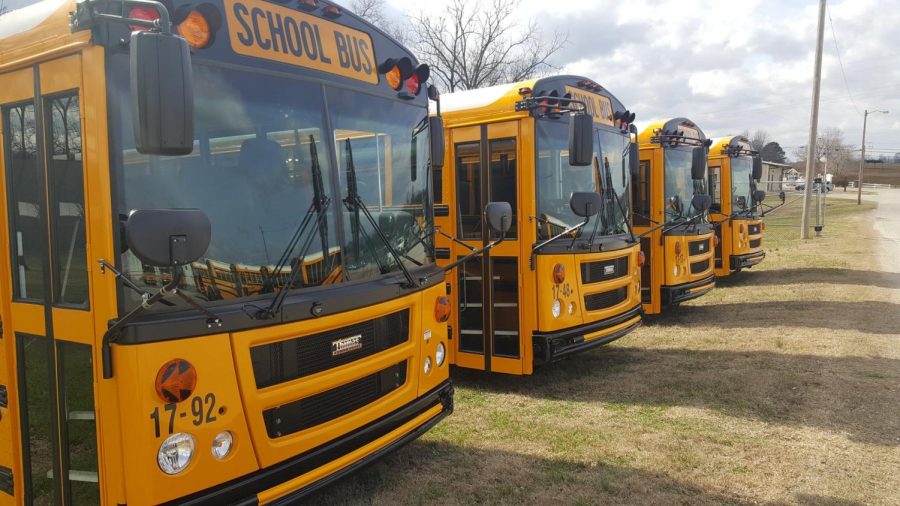End students’ days on a high note: MCPS should make music education mandatory
A music requirement in MCPS has the potential to improve students’ wellbeing and work habits.
March 27, 2022
When I was signing up for my freshman year classes three years ago, there was one graduation requirement that stood out to me: MCPS’ mandatory art credit. Knowing that I would have to get it over with eventually, I reluctantly signed up for Piano 1. Little did I know that this would be one of the most monumental decisions my 14-year-old self made.
When I first stepped foot in the class, I viewed Piano 1 like it was English or biology — just another course I was forced into taking to graduate. Slowly but surely, however, as I got used to my daily routine in Piano, the class became the best part of my school day. Getting to sit down at my keyboard, put on my headphones and play music for 45 minutes allowed me to decompress and step back from the stressors that surrounded me.
Most importantly, revisiting an instrument that I hadn’t taken lessons in since elementary school reignited my love for music. I went on to take Piano 2 my sophomore year, and now, as a junior — having taken all available Whitman piano classes — I am taking Guitar 1. I will be in Guitar 2 during my senior year because each of my music classes have been creative outlets vital to my well-being, making school days more enjoyable. Reconnecting to my love for music in my original piano class even inspired me to start a band with my friend during my sophomore year.
MCPS doesn’t currently mandate that students take music classes past elementary school. That needs to change; the school district should require high school students to take a semester of a music course as half of the one-year mandatory art credit. While classes like ceramics and art history are certainly important, music courses offer unique neurological benefits and can help students improve academically.
Whitman has a variety of music courses that students could take to fulfill such a requirement. Aside from guitar and piano, Whitman and other MCPS high schools offer orchestra, band and chorus, all of varying levels.
Regardless of the instrument, playing music activates almost all of the brain’s regions, which can allow students to gain improved problem-solving abilities and stronger organization skills. Through daily exposure to music, students could keep their brains healthy and correspondingly become more prepared to accomplish their goals.
Musical education also correlates with stronger academic performance. According to a study from the National Association for Music Education, student musicians who took the 2012 SAT scored 31 points above average in reading, 23 points above average in math, and 31 points above average in writing. These score differences are drastic; the SAT was scored on a 2400-point scale, and a 10-point difference can drop a test-taker down by multiple percentiles.
While music teacher Heather Borsum said she’d be hesitant to get on board with mandating students to take classes they aren’t interested in, she recognizes the benefits that music education can have on growing brains.
“There are parts of your brain that are just wired for music and performing music accesses those regions that are otherwise unused,” Borsum said. “Music is brain food.”
By studying music, students would also learn a valuable lesson regarding the importance of discipline. Although learning a new instrument can be difficult, the time and effort musicians put into practicing can make musical achievements — like mastering songs — all the more rewarding. Through spending time with an instrument every school day, students can learn that hard work truly does pay off.
“Since I’ve been learning music since elementary school, it is difficult for me to tell if it has made a difference in my academic performance,” junior Colin Koonce said. “But, music definitely has taught me about the importance of practice which I think correlates to my study habits now.”
Junior Jack Mandell, who has taken in-school music classes since Pyle and is currently enrolled in wind ensemble, recognizes the fulfillment one can gain from taking a music class.
“To me, music is kind of like a game with levels you always have to beat,” Mandell said. “You have a goal in mind, and it’s difficult, but when you succeed, it’s really exciting. You end up with a beautiful piece of music as well.”
Many argue that one course about physical art should be enough to fulfill the art credit. However, there are numerous neurological benefits that are specific to music. For example, musicians are 59% less likely to develop dementia than non-musicians, since learning and performing music increases the brain’s resiliency. Additionally, learning music engages the brain’s neocortex due to its repetitive and rhythmic structure. These rhythms create calmness and decrease impulsivity among musicians, according to the Sloan School of Music.
“If I’m having an especially busy day, I always look forward to guitar class,” Koonce said. “It distracts me from what is stressing me out and gives me the chance to improve at guitar.”
From doing homework to completing college applications to maintaining a social life, students have more than enough stress on their shoulders. A music requirement has the potential to improve students’ wellbeing and work habits. And for many, a music course requirement could help unlock a love for music that was buried deep inside, just as my piano class did for me.








